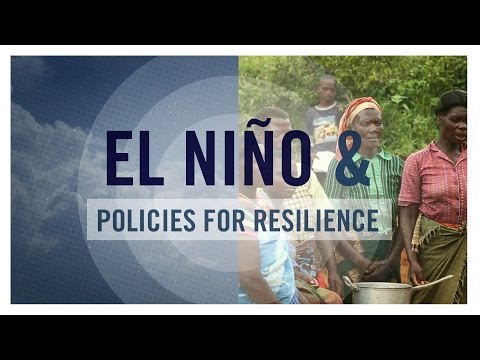The current episode of El Niño—the periodic weather pattern caused by warmer sea surface temperature in the Pacific Ocean—is looking like the strongest on record. Although the weather pattern’s impact on agricultural production and prices varies widely, certain regions and vulnerable households are being hit extremely hard, highlighting the need for careful monitoring, transparent trade policies, expanded safety nets, and long term improvements to resilience and production.
A new IFPRI Policy Brief lays out current and expected impacts of El Niño at the global, regional, and national level, and offers short and long term national policy recommendations to respond to its effects.
Hardest hit regions include East Africa, Central America, and Southeast Asia. In Ethiopia, crop and livestock losses have left 10 percent of the population in need of food aid. Honduras may lose 80 percent of its maize crop, and rice prices in Indonesia and the Philippines are expected to surge because of El Niño-related production shocks.
The good news is that global commodity prices are at the lowest level since 2010 and global cereal production has been increasing over the past three years. These factors may buffer the negative impact of El Niño—but only where there are good linkages to regional and global markets and open trade.
In the short term, countries must put into place targeted safety net programs and emergency relief to immediately help their most vulnerable households. Ensuring the free flow of information on prices, market availability, and acute malnutrition will allow these relief efforts to reach those in need most quickly. In the longer term, key policy measures can make a huge difference. In Ethiopia, investments to boost productivity—and improve infrastructure—have helped keep maize prices low despite the worst drought in 30 years. In addition to research and extension investments to better prepare farmers for weather and climate shocks, countries should implement policies that discourage domestic trade restrictions and encourage international trade and stabilized prices.
Read the full Policy Brief for regional outlooks and more detailed policy recommendations.







